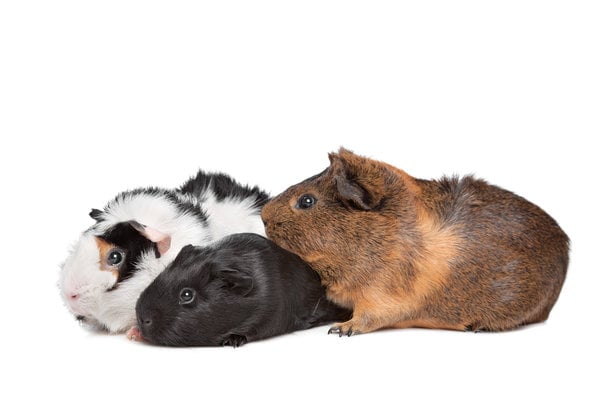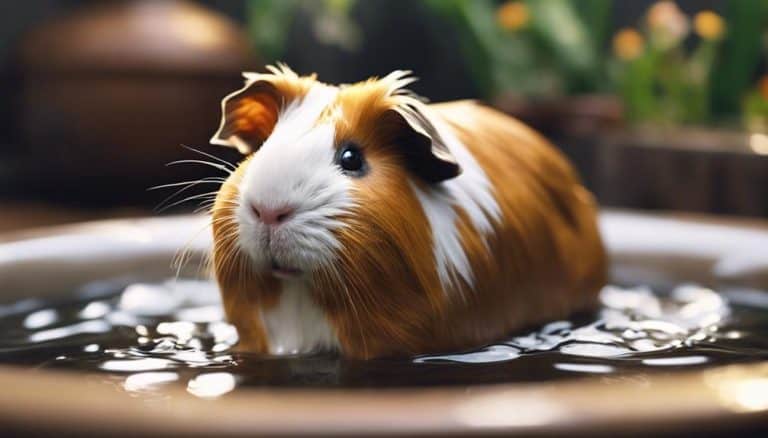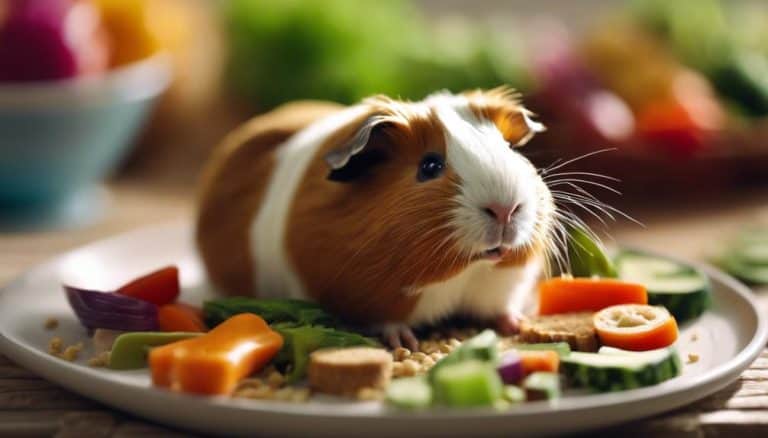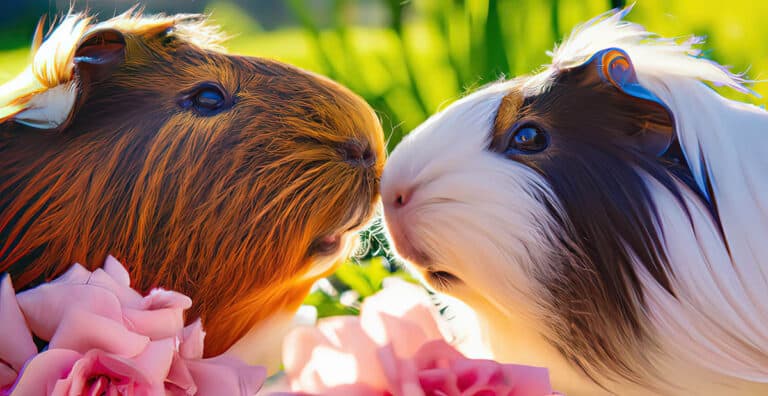How Do Guinea Pigs Die
Did you know that guinea pigs have an average lifespan of 5-7 years? Unfortunately, like any living creature, they are not immune to the inevitability of death. In this article, we will explore the various ways guinea pigs can meet their end.
From age-related health issues to respiratory illnesses, digestive problems, injuries, and accidents, as well as neglect and improper care, we will shed light on the factors that can affect the lifespan of these beloved pets.
Key Takeaways
- Age-related health issues such as arthritis, dental problems, and vision impairment can contribute to the death of guinea pigs.
- Respiratory illnesses can be fatal if not properly managed, highlighting the importance of maintaining a clean living environment, avoiding drafts, and seeking prompt veterinary consultation.
- Digestive problems, including dental issues and gastrointestinal issues, can lead to death if not addressed. Monitoring eating habits, regular dental check-ups, and a balanced diet are crucial.
- Injuries and accidents can be fatal for guinea pigs, emphasizing the need for a safe and secure environment, avoiding wire-bottomed cages, and handling them with care.
Age-Related Health Issues
As guinea pigs age, we may experience various health issues related to their age. Common age-related conditions that guinea pigs may develop include arthritis, dental problems, and vision impairment.
Arthritis can cause stiffness and pain in their joints, making it difficult for them to move around. Dental problems, such as overgrown teeth or tooth decay, can lead to eating difficulties and weight loss. Vision impairment can affect their ability to navigate their surroundings.
To manage health issues in older guinea pigs, it is important to provide a balanced diet that is high in fiber and low in sugar to support their overall health. Regular veterinary check-ups are crucial to catch any health problems early and ensure appropriate care. Additionally, providing a comfortable and spacious living environment can help minimize stress and promote their well-being.
Respiratory Illnesses
Respiratory illnesses can be a common cause of death for guinea pigs. These small creatures are susceptible to various respiratory conditions that can quickly become life-threatening if left untreated. Guinea pig owners must be aware of the signs and symptoms of respiratory illnesses and take immediate action to prevent further complications.
Here are some prevention methods and treatment options for respiratory illnesses in guinea pigs:
- **Maintain a clean living environment**: Regularly clean the cage and remove any bedding or materials that may harbor bacteria or irritants.
- **Avoid exposure to drafts**: Guinea pigs are sensitive to temperature changes, so keep them away from drafts to prevent respiratory infections.
- **Promote good ventilation**: Ensure proper airflow in the guinea pig’s living area to prevent the buildup of ammonia or other harmful substances.
- **Consult a veterinarian**: If you notice any signs of respiratory illness, such as wheezing, coughing, or difficulty breathing, seek veterinary care promptly. Treatment options may include antibiotics, nebulization, or supportive care to alleviate symptoms and prevent further complications.
Digestive Problems
When it comes to digestive problems, we need to be aware of the signs and symptoms that may indicate an issue with our guinea pigs’ gastrointestinal health. Gastrointestinal issues are common among guinea pigs and can range from mild to severe. One of the most common digestive problems in guinea pigs is dental problems.
Guinea pigs have continually growing teeth, and if they are not properly worn down through chewing, it can lead to dental issues such as overgrowth or malocclusion. These dental problems can cause pain and discomfort, leading to a loss of appetite and weight loss.
Other signs of gastrointestinal issues in guinea pigs include bloating, diarrhea, constipation, and a decrease in activity level. It is important to monitor our guinea pigs’ eating habits and behavior closely and seek veterinary care if we notice any of these signs. Regular dental check-ups and a well-balanced diet can help prevent digestive problems in our furry friends.
Injuries and Accidents
Injuries and accidents can happen to our guinea pigs, so we need to create a safe and secure environment for them to prevent any harm. As responsible guinea pig owners, we must be proactive in preventing injuries and accidents. Here are some key tips to keep in mind:
- Provide a spacious and well-maintained enclosure to avoid falls and entrapment.
- Avoid using wire-bottomed cages to prevent foot injuries.
- Keep dangerous objects and chemicals out of reach to avoid poisoning or ingestion.
- Handle guinea pigs with care, supporting their delicate bodies to prevent accidental injuries.
Neglect and Improper Care
Neglecting the basic needs of our guinea pigs can have serious consequences for their health and well-being. It is crucial to understand guinea pig behavior to provide them with proper care and prevent neglect. Guinea pigs are social animals that require companionship, so it is important to have at least two guinea pigs to prevent loneliness and depression.
They also need a spacious cage with plenty of room to move around and exercise. Providing a balanced diet rich in hay, fresh vegetables, and pellets is essential for their overall health. Regular veterinary check-ups are necessary to ensure their well-being and detect any potential health issues early on.
By understanding their behavior and meeting their basic needs, we can prevent neglect and ensure the happiness and longevity of our beloved guinea pigs.
Conclusion
In conclusion, guinea pigs can unfortunately succumb to various health issues and accidents. Age-related health issues, respiratory illnesses, digestive problems, injuries, and neglect can all contribute to their demise. Guinea pig owners need to provide proper care and attention to ensure their well-being.
Interestingly, studies have shown that respiratory illnesses are one of the leading causes of death in guinea pigs, highlighting the importance of maintaining a clean and hygienic environment for these adorable pets.







